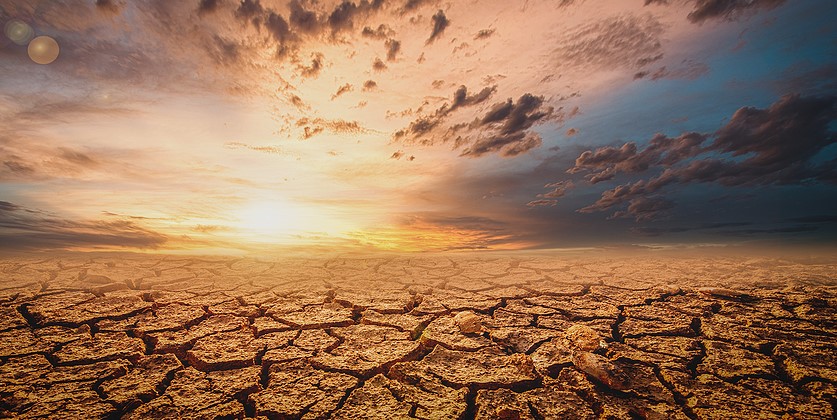News
China Drought ‘Threatening’ Global Food Security
Record heatwaves and prolonged drought conditions have hit China hard this year, with some rivers in the country – including parts of the Yangtze – drying up in the face of soaring temperatures.
In August, it was reported that the Yangtze – the third biggest river in the world – reached record low water levels, with water flow more than 50 per cent below the average of the last five years.
The Guardian reported at the time that authorities in affected regions found themselves forced to take action to shore up water and power supplies ahead of the harvest season for crops like soy and rice, which are both water intensive. For example, 980m cubic metres of water was discharged from reservoirs to help replenish lower levels of the Yangtze.
At least 2.46 million people in the country have been affected by drought this year… but it seems that the ramifications of such extreme weather conditions could be more widespread than that, potentially affecting all four corners of the globe.
New research from Rice University has suggested that, with China now facing a serious water catastrophe after record-breaking drought this summer, the consequences could be devastating for food security, energy markets and supply chains around the world.
Author of the report Gabe Collins, Baker Botts fellow in energy and environmental affairs at the university’s Baker Institute, argued that the world is currently not ready to handle potential disruptions to industrial material production and grain trade patterns.
As such, the recommendation is that the US (and, by extension, other countries) takes urgent action to separate itself from critical supply chains in China as quickly and comprehensively as they can.
Along with report co-author Gopal Reddy (founder of Ready for Climate), Mr Collins wrote: “Policy discussions of China-driven risks so far have mostly centred on the nation’s slowing growth, real estate bubbles, high debt and potential military conflict over Taiwan.
“These factors are significant but China’s incipient water crisis, which receives far less attention from policymakers, could plausibly overwhelm such issues. An unsettling question emerges: What happens if China suffers a multiyear water crisis that significantly reduces its grain production and electricity supplies?”
Because water is critical, not just for human consumption, but for electricity generation and agricultural irrigation, the report authors suggest that any disruptions in China – as the “factory floor of the world” – would have a big impact on global supply chains.
It was further noted that, although some nations have demonstrated that it is possible to drive efficiencies and manage demand by raising water costs, this will be hard to push through in China, because the country’s industrial competitiveness on a global stage is based on purposely depressing input costs, including water and energy (coal).
Industries expected to be affected by drought conditions in China include those that are helping the world to manage climate change and make the move to less-water intensive power generation, with supply chains originating in China.
For example, rare earth metals for wind turbines, polysilicone for solar cells and raw material refining and cell production for electric vehicle batteries are all likely to be disrupted, the report concludes.
Do you want to find out about water efficiency and how you can make changes as a business? Get in touch with H2o Building Services today to find out more.
